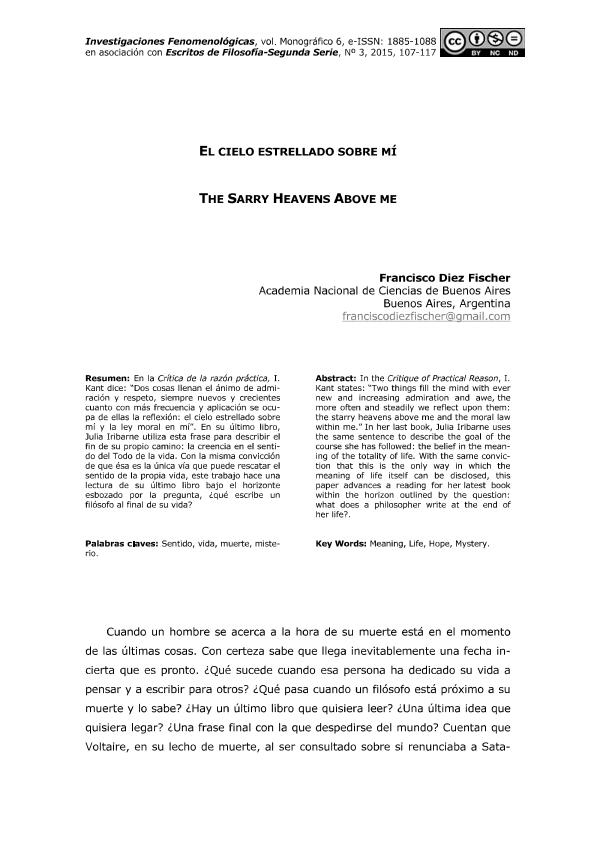Artículo
En la Crítica de la razón práctica, I. Kant dice: “Dos cosas llenan el ánimo de admiración y respeto, siempre nuevos y crecientes cuanto con más frecuencia y aplicación se ocupa de ellas la reflexión: el cielo estrellado sobre mí y la ley moral en mí”. En su último libro, Julia Iribarne utiliza esta frase para describir el fin de su propio camino: la creencia en el sentido del Todo de la vida. Con la misma convicción de que ésa es la única vía que puede rescatar el sentido de la propia vida, este trabajo hace una lectura de su último libro bajo el horizonte esbozado por la pregunta, ¿qué escribe un filósofo al final de su vida? In the Critique of Practical Reason, I. Kant states: “Two things fill the mind with ever new and increasing admiration and awe, the more often and steadily we reflect upon them: the starry heavens above me and the moral law within me.” In her last book, Julia Iribarne uses the same sentence to describe the goal of the course she has followed: the belief in the meaning of the totality of life. With the same conviction that this is the only way in which the meaning of life itself can be disclosed, this paper advances a reading for her latest book within the horizon outlined by the question: what does a philosopher write at the end of her life?.
El cielo estrellado sobre mí
Título:
The sarry heavens above me
Fecha de publicación:
06/2015
Editorial:
Sociedad Española de Fenomenología
Revista:
Investigaciones Fenomenológicas
ISSN:
1137-2400
e-ISSN:
1885-1088
Idioma:
Español
Tipo de recurso:
Artículo publicado
Clasificación temática:
Resumen
Palabras clave:
Iribarne
,
Fenomenología
,
Husserl
,
Temporalidad
Archivos asociados
Licencia
Identificadores
Colecciones
Articulos(SEDE CENTRAL)
Articulos de SEDE CENTRAL
Articulos de SEDE CENTRAL
Citación
Díez, Francisco; El cielo estrellado sobre mí; Sociedad Española de Fenomenología; Investigaciones Fenomenológicas; 6; 6-2015; 107-117
Compartir




